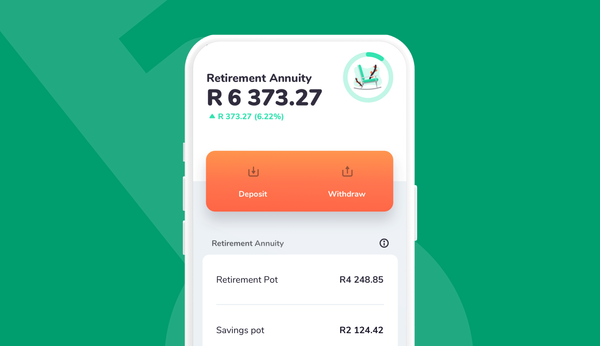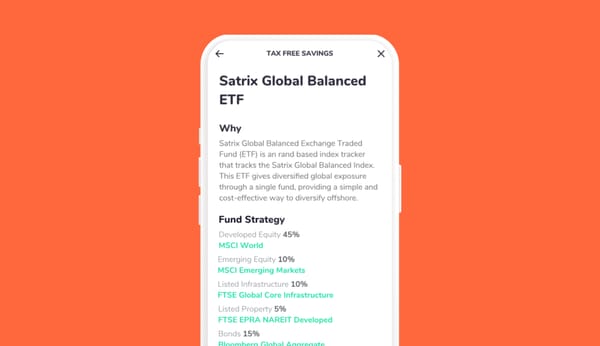It seems that everyone is talking about investing offshore to protect their assets against the weakening rand and lagging South African economy. Is it something South Africans should be doing? In this blog post, we explain exactly what investing offshore is, and then go into whether this type of investing is for you.
What is offshore investing?
Offshore investing is when you invest in assets (shares, bonds, property, etc.) that have a jurisdiction in a different country to where you reside. For example, if you live in South Africa and buy a property in Mauritius, that’s an offshore investment. Same goes if you buy shares in Apple, which is listed in the US.
How do I invest offshore?
There are two main ways for South Africans to get exposure to assets that are in other markets:
1. Direct offshore investment
Investing your money directly offshore means that you convert your rands into dollars, euros or whatever the relevant currency is, and then move this into a bank or investment account that is held overseas. Here are some of the T&Cs that you need to keep in mind with direct offshore investing:
- You are allowed to invest R1 million a year offshore without any approval (this is called your Single Discretionary Allowance).
- If you want to invest more than R1 million in a calendar year, you will need to get approval from SARS and the Reserve Bank. If you get this approval, you can move up to another R10 million offshore.
- There are costs involved in converting your money, and in opening a bank or investment account overseas, which you need to take into account.
- Many of the investment products that are available have minimum investment requirements, like $10,000.
2. Indirect (rand-based) offshore investment
Here you’re able to invest in investments that are in rands, but which have exposure to offshore assets. You don’t have to convert your rands, and minimum investment amounts are lower or even don’t apply. You also don't need to get any approvals in order to invest. This could be in the form of a feeder fund: a rand-based fund which invests into another fund (in this case, directly in offshore assets).
One example of a rand-based offshore fund is the Sygnia Itrix S&P 500 ETF, which allows you to invest in rands, but gives you exposure to companies that are part of the Standard & Poor's (S&P) 500: an index which tracks and goes up and down with the performance of around 500 of the largest American companies, like Apple, Tesla and Microsoft. It’s considered to be one of the best measures of American stock market performance.
Indirect (rand-based) offshore investments allow you to get exposure to offshore assets without the headache of sending your money to another country.
How am I taxed on offshore investments?
You’re taxed on any capital gains (growth on your investment) that are over R40,000 each year (applies to all investments), only if and when you withdraw or sell your investments. You may also incur tax on any dividends received.
There is a slight difference between how you calculate your capital gain on the two different options we’ve mentioned above:
- Capital gain on direct offshore investing: If you initially bought an asset for $100 (and the rand was at R10/dollar so you paid R1,000) and then sold it years later for $125 (and the rand was at R20/dollar so you received R2,500), your capital gain would be $25 (R500 in rand terms).
- Capital gain on indirect (rand-based) offshore investing: If you buy something for R1,000 and sell it years later for R2,500, your capital gain is R1,500. Your capital gain will be affected by the performance of the asset, as well as any currency movement.
So the cashflows in both examples are the same, but the capital gain – and therefore potential tax payable – is more on the indirect option. This result would be reversed in a scenario where the rand strengthens, which is also possible, albeit less likely.
What are the risks?
There are three main risks to keep a lookout for in offshore investing:
- The rand strengthens. One of the reasons to invest offshore is for currency diversification, but there is also the chance that the rand strengthens against offshore currencies. This means that the rand value of your investment could decrease. So even if your investment performed well in its local currency, the value when you convert it back to rands may have fallen.
- Political or regional disruption. This could also impact your investments. For example, when the Russian-Ukranian war started, many Russian investments dropped drastically in value.
- A change in regulations in the offshore market. For example, if the government of a certain country does something that impacts the profitability or ability of a certain company or industry to operate, this will impact the value of your investment.
So should you invest offshore?
Is there a good reason to invest offshore? Yes, for diversification, of course! It’s estimated that South Africa has less than 1% of the world's investable assets, so if your investments are limited to what is available locally, then you’re missing out on a very large opportunity.
Investing offshore gives you access to different companies operating in different markets so you can get exposure to industries that may not be available in South Africa. These companies will also give you exposure to different currencies, depending on where they operate (and everyone is always afraid of the rand tanking!).
Offshore investment has a place in many people’s portfolios. However, you should make sure you have the basics in place first: set up an emergency fund, try repaying as much of your debt as possible, then look to grow your wealth through investing in both local and offshore equities.










